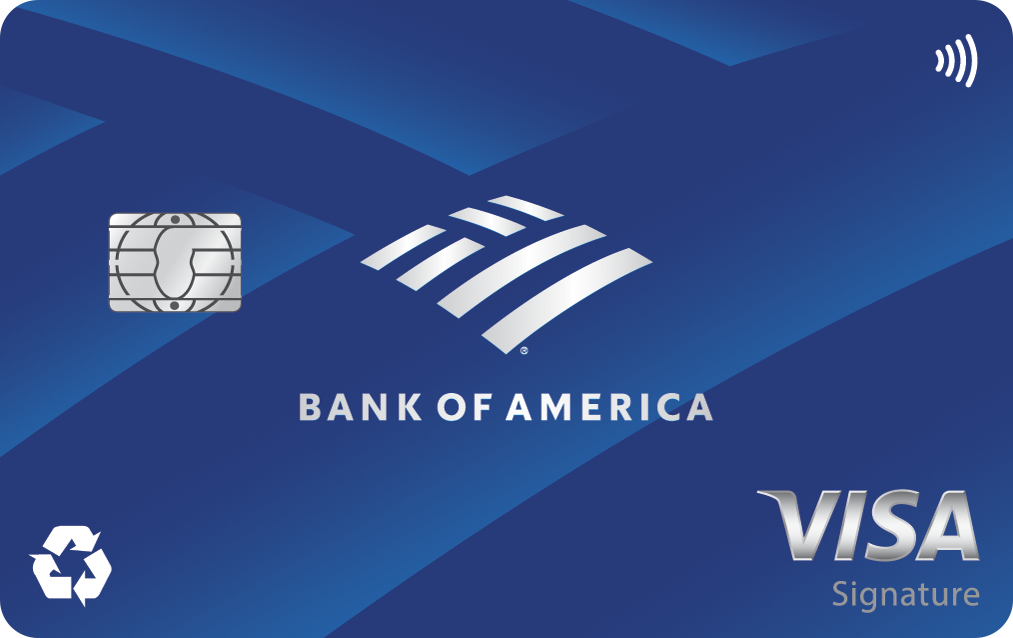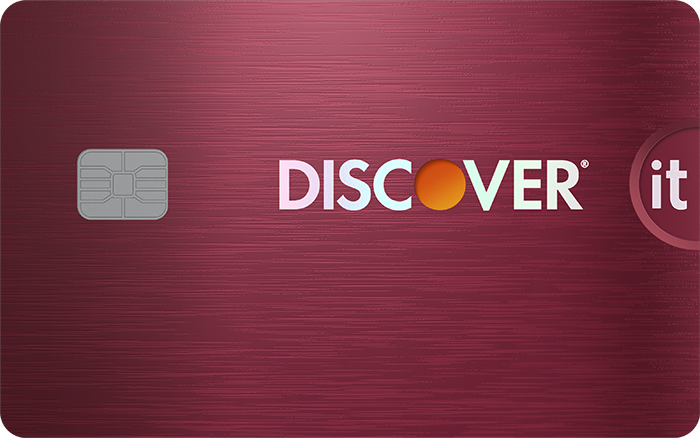Dive deeper into our top credit card picks
Credit card comparison
We recommend comparing options to ensure the card you're selecting is the best fit for you. To make your search easier, here's a short list of standout credit cards.
| Offer | Our Rating | Welcome Offer | Rewards Program | APR | Learn More |
|---|---|---|---|---|---|
|
5.00/5
Our ratings are based on a 5 star scale.
5 stars equals Best.
4 stars equals Excellent.
3 stars equals Good.
2 stars equals Fair.
1 star equals Poor.
We want your money to work harder for you. Which is why our ratings are biased toward offers that deliver versatility while cutting out-of-pocket costs.
|
Discover will match all the cash back you’ve earned at the end of your first year. INTRO OFFER: Unlimited Cashback Match for all new cardmembers. Discover will automatically match all the cash back you’ve earned at the end of your first year! There’s no minimum spending or maximum rewards. You could turn $150 cash back into $300. | 1% - 5% Cashback Earn 5% cash back on everyday purchases at different places you shop each quarter like grocery stores, restaurants, gas stations, and more, up to the quarterly maximum when you activate. Plus, earn unlimited 1% cash back on all other purchases. |
Intro: Purchases: 0%, 15 months Balance Transfers: 0%, 15 months Regular: 17.49% - 26.49% Variable APR |
||
|
5.00/5
Our ratings are based on a 5 star scale.
5 stars equals Best.
4 stars equals Excellent.
3 stars equals Good.
2 stars equals Fair.
1 star equals Poor.
We want your money to work harder for you. Which is why our ratings are biased toward offers that deliver versatility while cutting out-of-pocket costs.
|
N/A | N/A |
Intro: 0% intro APR for 21 months from account opening on purchases and qualifying balance transfers Purchases: 0% intro APR for 21 months from account opening on purchases Balance Transfers: 0% intro APR for 21 months from account opening on qualifying balance transfers Regular: 17.49%, 23.99%, or 28.24% Variable APR |
||

Apply Now for Bank of America® Travel Rewards credit card
On Bank of America's Secure Website. |
4.70/5
Our ratings are based on a 5 star scale.
5 stars equals Best.
4 stars equals Excellent.
3 stars equals Good.
2 stars equals Fair.
1 star equals Poor.
We want your money to work harder for you. Which is why our ratings are biased toward offers that deliver versatility while cutting out-of-pocket costs.
|
25,000 points (worth $250) 25,000 online bonus points after you make at least $1,000 in purchases in the first 90 days of account opening - that can be a $250 statement credit toward travel purchases | 1.5-3 points per dollar Earn unlimited 1.5 points per $1 spent on all purchases, with no annual fee and no foreign transaction fees, and your points don't expire as long as your account remains open. Earn 3 points per $1 spent on travel purchases booked through the Bank of America Travel Center. |
Intro: 0% Intro APR for 15 billing cycles for purchases, and for any balance transfers made in the first 60 days. After the Intro APR offer ends, a Variable APR that’s currently 17.49% - 27.49% will apply. A 3% Intro balance transfer fee will apply for the first 60 days your account is open. After the Intro balance transfer fee offer ends, the fee for future balance transfers is 4%. Balance transfers may not be used to pay any account provided by Bank of America. Purchases: 0% Intro APR for 15 billing cycles for purchases Balance Transfers: 0% Intro APR for 15 billing cycles for any balance transfers made in the first 60 days Regular: 17.49% - 27.49% (Variable) |
Apply Now for Bank of America® Travel Rewards credit card
On Bank of America's Secure Website. |
At Motley Fool Money, every credit card we review is rated on a 5-star scale, scored to a tenth of a point. Our ratings weigh the features that matter most: rewards rates, 0% intro APR offers, welcome bonuses, fees, and perks like travel credits and purchase protections.
We score cards within four primary categories:
- 0% intro APR cards for paying down balances or financing purchases
- Travel cards for maximizing points, miles, and perks on the road
- Cash back and rewards cards for everyday spending value
- Business cards designed to fit company expenses and growth
Top-rated cards typically combine strong long-term value, attainable bonuses, low fees, and standout protections or perks.
We combine these factors with an evaluation of brand reputation and customer satisfaction to ensure you're getting the best credit card recommendations. Our aim is to maintain a balanced best-of list featuring top-scoring credit cards from reputable brands. 'Best for' category selections on this page are determined by our editors, and a single card may be recognized in multiple categories.
Ordering within lists is influenced by advertiser compensation, including featured placements at the top of a given list, but our product recommendations are NEVER influenced by advertisers. Learn more about how Motley Fool Money rates credit cards.
At Motley Fool Money, every credit card we review is rated on a 5-star scale, scored to a tenth of a point. Our ratings weigh the features that matter most: rewards rates, 0% intro APR offers, welcome bonuses, fees, and perks like travel credits and purchase protections.
We score cards within four primary categories:
- 0% intro APR cards for paying down balances or financing purchases
- Travel cards for maximizing points, miles, and perks on the road
- Cash back and rewards cards for everyday spending value
- Business cards designed to fit company expenses and growth
Top-rated cards typically combine strong long-term value, attainable bonuses, low fees, and standout protections or perks.
We combine these factors with an evaluation of brand reputation and customer satisfaction to ensure you're getting the best credit card recommendations. Our aim is to maintain a balanced best-of list featuring top-scoring credit cards from reputable brands. 'Best for' category selections on this page are determined by our editors, and a single card may be recognized in multiple categories.
Ordering within lists is influenced by advertiser compensation, including featured placements at the top of a given list, but our product recommendations are NEVER influenced by advertisers. Learn more about how Motley Fool Money rates credit cards.
Top credit cards by issuer
Credit card tools
Keep learning about credit cards
Recent Articles
View All ArticlesThis Bank of America Business Card Could Earn You $1,200+ in 2026
3 Places You Should Never Use a Debit Card
Want to Pause Interest Charges? This Is the Best 0% Intro APR Card for 2026
Unlock Hundreds in Annual Perks: The Best Luxury Credit Cards This Week, Jan. 16, 2026
Great Rewards Without the Hassle: The Best No-Annual-Fee Cards This Week, Jan. 16, 2026
3 Credit Cards That Could Save You $750+ on Travel in 2026
This Credit Card Combo Earned Me Over $1,380 Last Year
Here's What Could Happen if Trump's 10% Credit Card Interest Cap Gets Approved
What's the Best Cash Back Credit Card Now? My Pick for January 2026
21 Months of 0% APR: Here's the Best Way to Avoid Paying Interest in 2026













